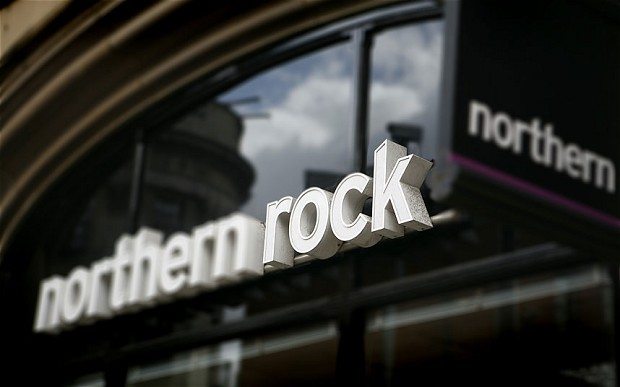Thousands of former Northern Rock shareholders are planning to restart their fight for compensation after the nationalised bank was left with £5 billion in surplus equity having repaid its government loans in full.
Dennis Grainger, chairman of the Northern Rock Small Shareholder Action Group, said that he would be writing to the prime minister and to the chancellor to recover the excess profits made by the Treasury from the bank’s 2008 nationalisation.
Northern Rock became a symbol of the financial crisis after depositors queued around the block to withdraw their savings in September 2007 in the first British bank run since 1886.
Initially propped up by loans from the Bank of England, the lender was nationalised in February 2008. Shareholders were paid nothing, unlike the Royal Bank of Scotland and Lloyds bailouts, when the state injected cash without wiping out existing equity holders.
At its peak, the government provided Northern Rock with £37 billion of funds, but that was down to just over £20 billion by 2010. The final loan was repaid in April last year and Northern Rock Asset Management, the company created to manage the run-off, handed a £2.7 billion dividend to the Treasury.
Its 2019 accounts show total equity in March 2019 of £5.13 billion, suggesting the state can expect a further £2.4 billion. At book value, NRAM would have been a FTSE 100 company last year.
“It is demonstrably unfair that the government should get back all the loans it made and then expect to pocket the billions of profits over and above that,” Mr Grainger said. “Those profits result from the inherent strength of Northern Rock assets that were seized from ordinary people who suffered badly. This is clearly a case of unjust enrichment of the government.”
Many of the 150,000 shareholders who lost out are widowers, pensioners and former staff from the bank’s home in Newcastle. Several lost their life savings.
The decision not to compensate shareholders was justified by a government-commissioned review in 2010, which concluded that the shares were worthless at the time of nationalisation. Shareholders argued that the terms of the review had been rigged.
The Treasury said that it made nothing once the financing costs of its loan and a £400 million loss on the sale of the good part of Northern Rock in 2012 were taken into account. The Treasury refused to set out the “exchequer financing” costs for NRAM.
NRAM has paid about £2 billion in interest and fees to the Treasury on top of its loan repayments and dividend. The Treasury loan was charged at 1 per cent above base rate since 2012.
Treasury figures show that since 2010 the total cost of financing its £44 billion loan to NRAM and Bradford & Bingley, which was nationalised in 2008, was £12.1 billion in March 2019.
That suggests it used an interest rate of about 3 per cent and assumed no loans were repaid at all. Even under that assumption, the state made a profit of £400 million from NRAM and B&B.


